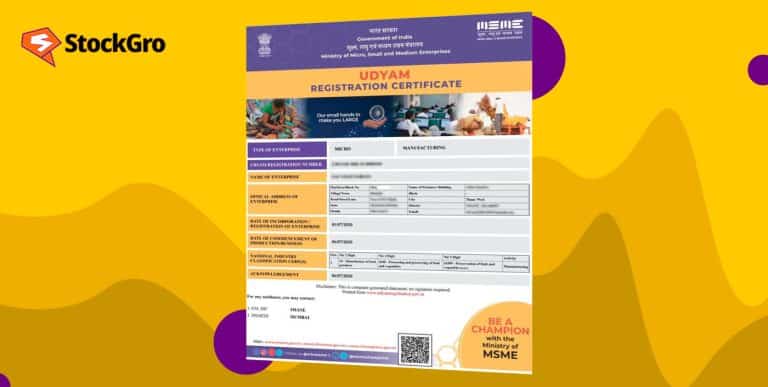
Your wealth is a culmination of hard work, calculated decisions, and perhaps a sprinkle of luck. Entrusting its management to a wealth manager is a significant step. This professional will guide your financial journey, shaping your portfolio and impacting your future security. Given the high stakes, selecting the appropriate wealth manager is of utmost importance.
We’ll delve into the world of wealth management, explore key considerations, and equip you with some tips on how to choose a wealth management firm or how to choose a private wealth manager.
Understanding wealth management
Wealth management is an all-encompassing approach to financial planning that goes beyond just investment strategies.
For better understanding: Financial planning vs wealth management: Which one is right for you?
It covers services like:
- Investment planning and portfolio management
- Tax planning
- Retirement planning
- Risk management
- Estate planning
A wealth manager acts as your financial quarterback, analysing your current situation, developing a personalised financial plan aligned with your goals, and then implementing and monitoring that plan over time.
Who is a wealth manager?
A wealth manager is a financial consultant who offers an all-inclusive range of financial services to individuals with significant wealth. They offer integrated financial planning, encompassing investment management, tax strategies, estate planning, and beyond.
Their primary responsibility is to gain a deep understanding of your financial circumstances, assist in setting realistic objectives, and devise a strategy to achieve those objectives while balancing risk and maximising returns.
As fiduciaries, wealth managers are obligated to place your interests at the forefront. They are often equipped with advanced certifications like Certified Financial Planner (CFP) or Chartered Financial Analyst (CFA) and possess a track record of successfully managing substantial investment portfolios for affluent clients.
How to choose a wealth manager?
Finding the right wealth manager is akin to finding a good doctor – you want someone you trust and feel comfortable with. Here are some factors to consider while choosing a wealth management company or choosing a wealth manager:
1. Understand your needs and goals
Before you start choosing a wealth manager, it is crucial to have a clear understanding of your financial needs and goals. Ask yourself questions like:
- What are my short-term and long-term financial objectives?
- Do I need help with retirement planning, estate planning, investment management, or tax planning?
- How complex are my financial affairs?
- What is my risk tolerance?
By clarifying your needs and goals, you can better communicate your expectations to potential wealth managers and assess if they can meet your requirements.
2. Qualifications
The qualifications of a wealth manager bear witness to their expertise and commitment in the domain. Look for professionals who possess respected credentials, such as Chartered Financial Analyst (CFA) or Certified Financial Planner (CFP).
Such qualifications require extensive education, stringent examinations, and a commitment to continual learning, which guarantees their proficiency in financial planning and asset management.
3. Experience
Experience is crucial. Seek a wealth manager with a demonstrated history of success. While previous achievements don’t assure future outcomes, they can provide insight into their methodology and efficiency. Question them about their familiarity with managing portfolios akin to yours and probe into their strategy for dealing with market volatility.
Ask about their tenure in the industry, the variety of clients they have served, and their understanding of the financial environment in India.
4. Fees and compensation
Wealth managers usually levy a fee that is either a percentage of the assets under management (AUM) or a fixed retainer. It is essential to comprehend the fee structure and its correlation with the services offered.
Beware of advisors who are primarily commission-driven, as their recommendations may be swayed by product sales incentives rather than your best interests.
5. Consider the range of services offered
As your financial requirements may change over time, it is crucial to select a wealth manager who provides various services. These services could encompass managing investments, planning for retirement, devising tax strategies, estate planning, and insurance planning.
A wealth manager with an extensive range of services can deliver more unified and comprehensive financial guidance.
Must read: How to grow your family’s wealth with smart budgeting and investing strategies
6. Trustworthiness
Trust forms the bedrock of any successful relationship, including the one with your wealth manager. You should feel confident that your wealth manager acts in your best interest and maintains confidentiality. Search for advisors who are fiduciaries, implying they have a legal duty to prioritise your interests.
Tips to choose the right wealth management company
Here are some tips to choose a wealth management company:
- Dedicate time to investigating various wealth management companies. Assess their offerings, fees, and customer testimonials to identify the one that aligns best with your requirements.
- Request referrals from friends, family, or colleagues. Personal endorsements can be a potent method to discover a reliable wealth manager.
- Feel free to ask in-depth questions about their methodology, services, and experience to potential wealth managers. This can offer valuable insights into their appropriateness for your requirements.
- Always confirm the qualifications and history of potential wealth managers.
- Contemporary wealth management companies often employ sophisticated technology to augment their services. Look for firms that provide strong online tools and platforms for managing your portfolio and financial plan.
Also read: How to build wealth with asset allocation strategies?
Bottomline
Selecting a wealth manager is a crucial choice. Be patient, conduct thorough research, and focus on finding a professional who comprehends your aspirations and requirements. Adhering to these guidelines can enhance your probability of discovering a dependable ally who will assist you in realising your financial objectives.
Remember: Don’t hesitate to interview several wealth managers before you decide. Ask questions, get references, and trust your gut instinct. With careful consideration, you can find a wealth manager who will empower you to take control of your financial future.

